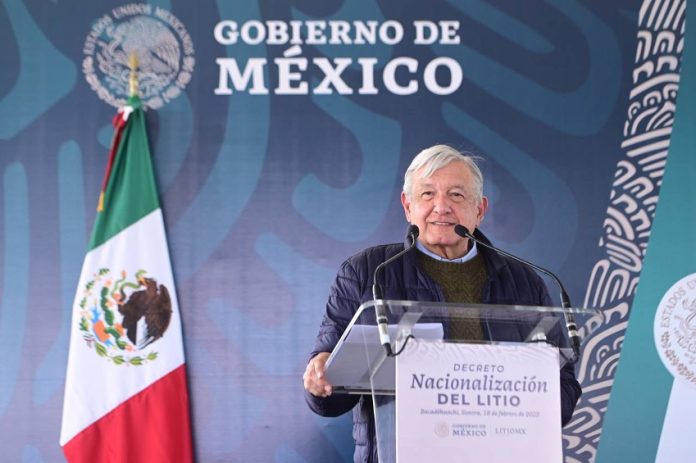The federal government nationalized lithium last year, and has now established a large lithium mining reserve in Sonora, the Mexican state with the largest deposits of the sought-after metal.
During a visit to the northern border state on Saturday, President López Obrador endorsed a decree that establishes the reserve across 234,855 hectares in the municipalities of Arivechi, Divisaderos, Granados, Huásabas, Nácori Chico, Sahuaripa and Bacadéhuachi.
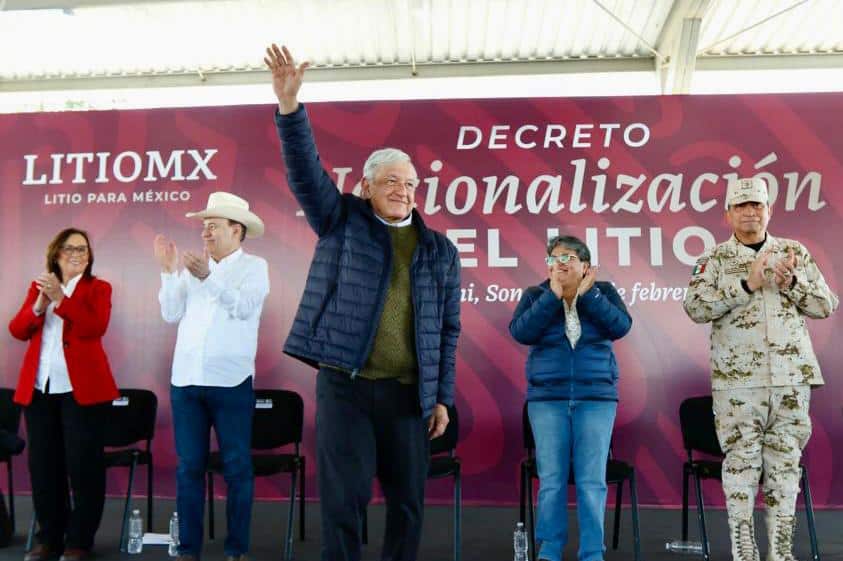
The decree notes that the “rights and obligations of the holders of current mining concessions within the Li-MX 1 lithium mining reserve area” are not affected.
Foreign companies, including China’s Ganfeng Lithium, were awarded contracts to exploit Mexico’s potential lithium reserves before nationalization of the metal. Close to a dozen foreign firms have active mining concessions that aim to exploit such deposits, according to the news agency Reuters.
The government published a separate “agreement” on Saturday that instructs the Energy Ministry (SENER) to “monitor the execution” of the decree establishing the lithium reserve.
It also directs SENER to “carry out the necessary actions” to comply with lithium provisions in the federal Mining Law – which was modified last April to establish the metal as “an asset of the nation” – and a decree published last August that ordered the creation of a state-owned lithium company.
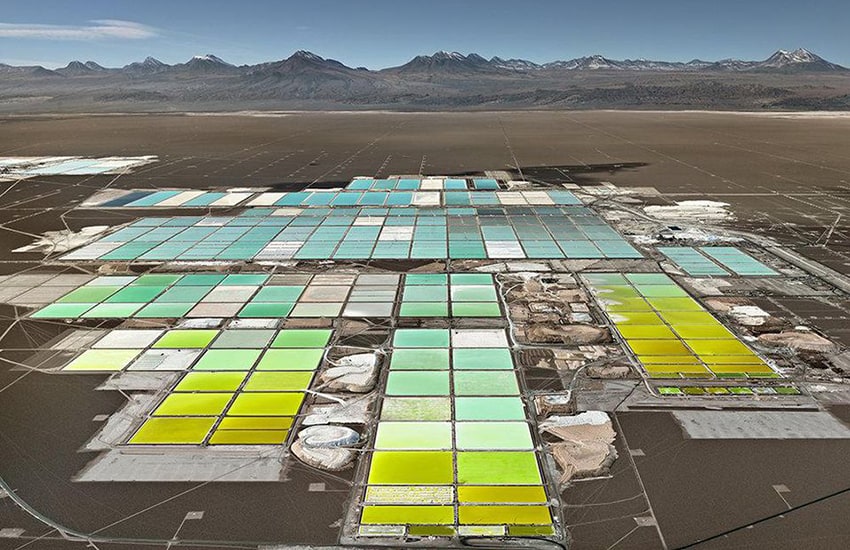
“What we’re doing … is nationalizing lithium so that foreigners can’t exploit it, not even those from Russia, China or the United States,” López Obrador said during an address Saturday in Bacadéhuachi, located in the northeast of Sonora.
“Oil and lithium belong to the nation, to the people of Mexico, to you – everyone who lives in this region of Sonora and all Mexicans,” he said.
“So we’re signing this agreement. There is already a law that was approved in Congress. There are, of course, injunctions – you know what the conservatives are like. They would like Mexico to become a colony of foreigners, not an independent, free, sovereign country,” the president said.
“But they won’t be able [to stop the nationalization of lithium] with their injunctions. … The decision was taken, the law is approved by the legislative power and lithium belongs to the nation.”
López Obrador said it has been established that there are significant quantities of lithium in Sonora, but noted that it is within clay deposits and thus difficult to mine.
“It requires a special treatment, but our researchers and experts are already doing studies to find the way to extract it and process it – separate it from the clay in order to have this raw material,” he said.
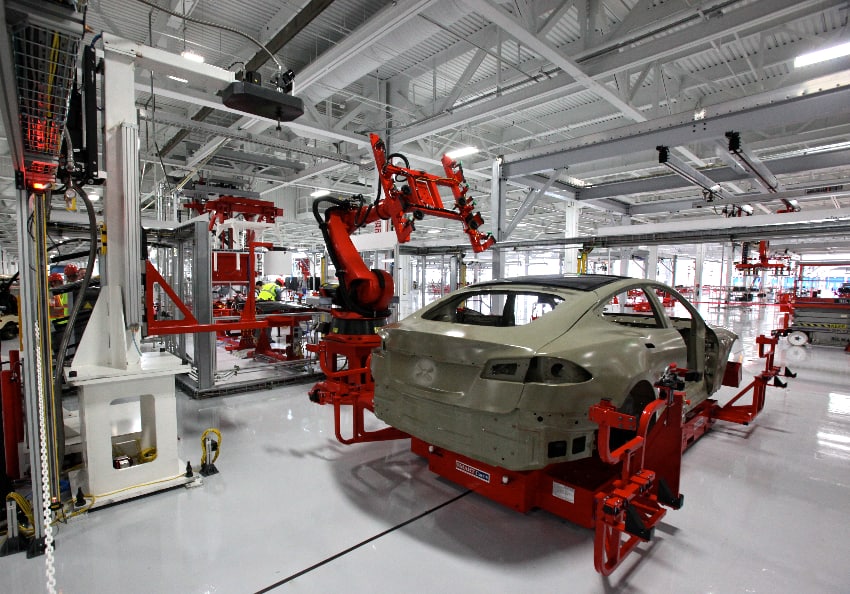
“… It’s essential for the production of [lithium-ion] batteries, electric cars can’t be made … without lithium,” López Obrador added, noting also that the United States and Canadian governments, as well as his own administration, are committed to increasing the manufacture of electric vehicles (EVs).
“So a process of exploration, of technological development to get the raw material is beginning,” he said, adding that the government would seek to attract lithium-ion battery plants to Mexico.
Jaime Gutiérrez Núñez, president of the Mexican Chamber of Mines, said in late 2021 that the government’s capacity to extract lithium was non-existent.
However, López Obrador said late last year that United States and Canadian companies would be invited to participate in Mexico’s nascent lithium mining sector. But any foreign and private companies that enter the sector will be required to be minority partners in joint ventures with the state-owned lithium company, he said Nov. 15.
The decree ordering the establishment of LitioMx says that the state-owned lithium company “may partner with other public and private institutions” in order to take advantage of Mexico’s lithium reserves.
Similarly, the CEO of LitioMx, Pablo Taddei, recently told Reuters that the company was open to partnerships, although he stressed that the government would have the majority stake in any joint ventures.
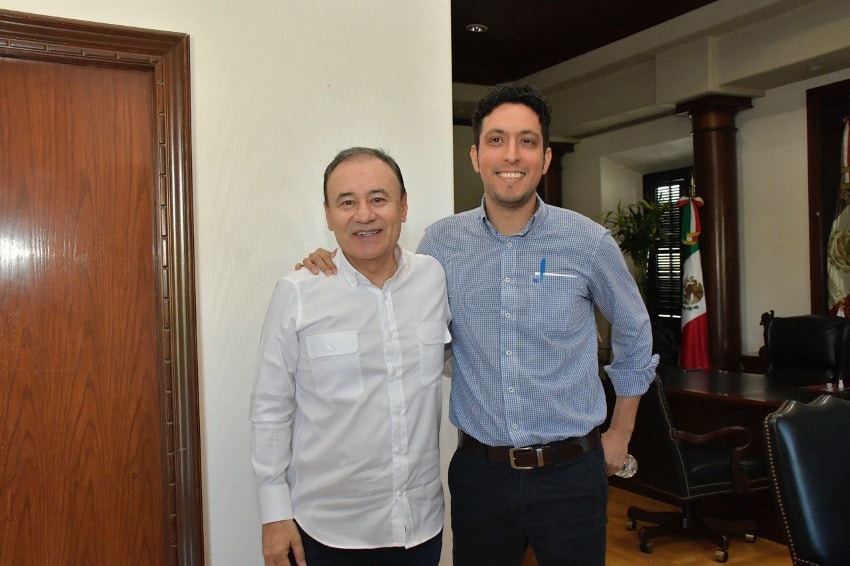
Sonora Governor Alfonso Durazo said Saturday that the sector was open to “national and foreign capital” but asserted that “the rights of the nation” would be protected. He also noted that the production of EVs requires graphite and copper and that Sonora has reserves of those resources as well.
In their speeches on Saturday, López Obrador and Economy Minister Raquel Buenrostro chose to focus on the nationalization of lithium rather than the proposed involvement of foreign companies in the sector. Both compared the nationalization of the metal to the oil expropriation carried out by former president Lázaro Cárdenas in 1938.
“This Feb. 18 will be united in history with … March 18 of 1938 when the nationalization of oil signified an epilogue to the revolutionary struggle and the beginning of the industrialization of modern Mexico. With the nationalization of lithium, President Andrés Manuel López Obrador deepens the project of transformation for 21st century Mexico,” Buenrostro said.
“… The nationalization of Mexican lithium, accompanied by the labor professionalism of Mexicans, will mark a new era in the automotive industry,” she said.
Meanwhile, an academic at the Metropolitan Autonomous University (UAM) in Mexico City warned that the extraction of lithium posed a threat to water supply in the areas where it is mined.
“To extract lithum in some mines in Chile, 600 liters of water per minute are needed,” said Aleida Azamar Alonso, coordinator of the sustainable societies masters degree program at the UAM campus in Xochimilco.
“That’s equivalent to the daily consumption of two people in Mexico City. The extraction of lithium in … [Mexico] will require even greater quantities of water,” she said.
Leticia Merino Pérez, head of an environment-focused “academic observatory” at the National Autonomous University, said that assessments of the impacts of lithium extraction on the environment and nearby communities must be carried out by independent experts prior to the commencement of mining.
“The exploration and exploitation of lithium must be established within a framework of transparency, regardless of whether it’s the state [doing the mining] or not,” she said.
If that doesn’t occur, the government could “violate the constitution as well as the rights of communities adjoining the exploitation areas,” Merino said.
Studies indicate there may be around 1.7 million tonnes of lithium in Mexico, with the largest deposits in Sonora. There are smaller deposits in other states including Baja California, San Luis Potosí and Zacatecas.
The Finance Ministry has estimated that lithium reserves in Sonora alone could be worth as much as US $600 billion.
With reserves of the alkali metal totaling 21 million tonnes, Bolivia is the world’s most lithium-rich nation, followed by Argentina, Chile, the United States and Australia, according to NS Energy.
With reports from Expansión Política, El Financiero, Reuters, El País and El Economista
